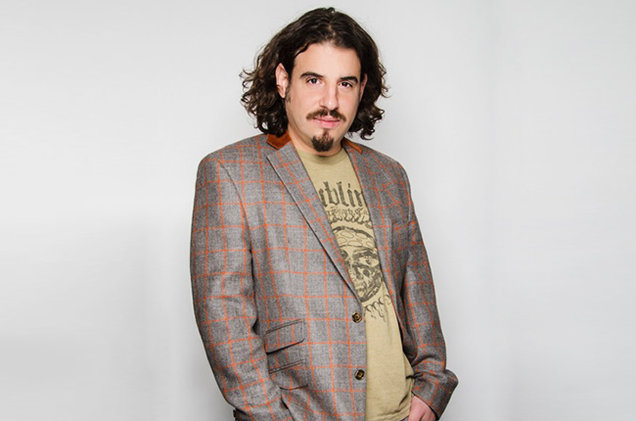Strength in Numbers: Musicians Discuss the Importance of the Affordable Care Act

I have an odd combination of careers. I’m an activist, musician and producer. I’m also one of the top Affordable Care Act (aka Obamacare) experts in New York State and founded NewYorkObamacare.com. I truly love what I do.
If Obamacare is repealed, as the Trump administration is proposing, then 200 million Americans will lose coverage—including those people so essential to creating the shows, festivals and records we all love. Most musicians can’t “call in sick” and, without the ACA, even those we consider to be “jamband gods” may be forced to take second jobs to secure insurance and ensure the well-being of their families and themselves.
“Most musicians rely on the ACA. Repealing it would affect everyone around me,” says Jon Dindas, producer of events such as Christmas Jam and Wilco’s Solid Sound Festival. “These musicians are not covered under group plans and rely on the ACA for their coverage. For smaller artists, I think you’ll see less touring and less output.”
Drive-By Truckers’ Patterson Hood echoes Dindas’ thoughts. “When someone tells me I should shut up and sing, you imagine how that makes me feel,” he says.
Insurance isn’t a luxury for musicians like Hood—it’s a necessity. He explains: “My wife and daughter both have scoliosis.” Prior to the ACA, those with pre-existing conditions who didn’t have jobs found it nearly impossible to become insured. His only options were to change jobs or pay out the nose. If that doesn’t make things difficult enough, Hood reveals, “My son has a growth hormone deficiency. Every day, he has to take a shot. Even with insurance, it is already an extremely expensive proposition, and I can’t even fathom what it would take if we ended up not being insured anymore.”
The end of the ACA could literally spell the end of music for Drive-By Truckers. When asked what he’d do if he weren’t able to get coverage, Hood says, “I would be forced to get a different job. I lose sleep at night over it.”
The ACA removed caps on insurers’ expenses. When you’re slammed with a huge bill for a surgery or baby delivery, the insurer has to pay every dime of it, whereas, before, there were low limits to what they would have had to pay out.
Scott Sharrard, the musical director and lead guitar player for Gregg Allman, also recognizes the importance of the ACA, adding that the issue is “very near and dear to [his] heart.”
When Sharrard and his wife had a child in 2011, “she had an emergency C-section and, thankfully, everything went great,” until the hospital came knocking. “We ended up with $30,000 in bills and had a $25,000 deductible at the time because we couldn’t afford to pay more. We were just starting out—young, in our 30s,” he says. Since the ACA began, Sharrard has been able to attain far better insurance and is now expecting another child. This time around, it should cost plenty less—for now.
So then, where should we go from here?
My first Phish show, the Clifford Ball in 1996, is what drew me into the scene. It was all about this community I was quickly becoming a part of—one that doesn’t walk past a downed brother or sister and lends a hand instead. The Affordable Care Act is one of the first signs that our scene’s dedication to helping others can be sewn into our national fabric and health care system. For Hood, Sharrard and Dindas, as well as Gov’t Mule keyboardist Danny Louis, the only solution is to take care of each other.
When asked if he thinks health care is a right, Louis says, “The appropriate word is ‘necessity.’ When people get sick, disease can spread and affect people who aren’t sick. It’s pretty simple. If we have a segment of our population who is not getting health care, those of us who are getting health care are still compromised by others who aren’t. So, as a collective, it is a necessity to make sure everyone is taken care of.”
He continues: “If you can’t look at it from the standpoint of loving compassion for your fellow humans, then just look at it pragmatically.”
And Sharrard elaborates, “My wife is French—she was raised in Haiti. Her relatives in France are not wealthy people living off a trust fund. They are working people, yet the quality of their schools and health care is world-class and free. How the hell are we the only first-world country who doesn’t have single-payer?”
The resounding consensus is that our nation—which was built on the values of taking care of your neighbor and caring for people who are down—must enact a single-payer health care system. It’s the only way we can do the right thing for our society, our economy and our health.
But how do we get there? For Dindas, who took matters into his own hands and founded the TRO Political Action Network, it’s about looking to the grassroots community that built the jamband scene in the first place. “Pick up the phone, call your representative and tell them how you feel. Get involved in local groups and progressive action. Make your voice heard,” he says. “There is strength in numbers.”
Jason Samel is the founder of NewYorkObamacare.com, as well as president of JayMar Insurance Agency and Movement Music Records. He Produced Occupy This Album, which won Best Compilation at the Independent Music Awards.



















